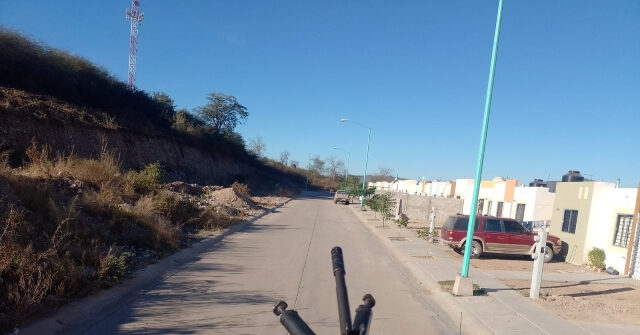In a shocking incident of violence against the media, a group of gunmen opened fire on the offices of El Debate, one of the principal newspapers in Culiacan, Sinaloa, Mexico. The assault occurred on Thursday night as part of the ongoing conflict between rival factions of the Sinaloa Cartel, which has turned the region into a battleground. Despite the heightened dangers presented by such cartel wars, the Mexican government has largely refrained from intervening directly, even while deploying hundreds of soldiers to the area to maintain order and control. The involvement of organized crime in combating state initiatives underscores the challenges faced by authorities in effectively managing the power of the drug cartels.
The direct attack involved multiple gunmen and at least a dozen shots targeting the El Debate building. Eyewitness accounts indicated that a well-armed individual exited a vehicle and began shooting randomly at the newspaper’s offices, ultimately striking the building’s façade and damaging parked vehicles nearby. After executing the brazen act, the gunman returned to his vehicle, and the entire convoy fled the scene, leaving behind an atmosphere of fear and uncertainty. Such incidents reflect the alarming normalization of violence in regions dominated by cartel dynamics, where armed groups display their disregard for the law, public safety, and the press.
Mexico consistently ranks as one of the world’s most perilous countries for journalists, a fact highlighted by numerous international press freedom organizations. Reporters in the country face severe risks, including targeting, kidnappings, and even murders, often fueled by the impunity with which criminals and corrupt officials operate. The preceding attack on El Debate further emphasizes the escalating trend of violence against the media, particularly as public reporting on cartel activities increasingly draws retaliatory measures from these organizations that seek to suppress unwanted exposure and maintain their influence over local populations.
The backdrop of this violence is a fierce power struggle between the Sinaloa Cartel’s factions, particularly the Chapitos and Mayos groups. This upheaval intensified following the arrest of the cartel’s historically significant leader, Ismael “El Mayo” Zambada, who was allegedly captured by his own godson, Joaquin Guzman Lopez. The capture was a strategic betrayal orchestrated under the pretense of a political meeting, culminating in Zambada’s transfer to U.S. authorities after being restrained and transported against his will. The resulting fallout of this betrayal has led to intensified conflict within the cartel, further destabilizing Culiacan and surrounding areas as factions vie for control and dominance.
El Debate’s continued commitment to reporting on the cartel-related violence, despite the risk to its journalists, underscores the critical role of a free and independent press in exposing crime and corruption. With the violence spreading beyond Sinaloa, the newspaper faces ongoing threats as it navigates the perilous landscape of covering organized crime. The paper’s resilience serves as a reminder of the importance of investigative journalism in a democratic society, even in the face of severe intimidation tactics employed by cartel operatives looking to control the narrative and silence dissent.
In light of this alarming attack and the broader context of violence against journalists in Mexico, it is imperative for both national and international communities to prioritize the protection of media workers. Addressing the issues of impunity, criminality, and political complicity must become fundamental goals for the Mexican government and its allies. Without adequate protection for journalists and adherence to the rule of law, the dangers faced by those informing the public will only amplify, ultimately threatening the fabric of democracy itself in regions where organized crime seeks to undermine state authority and public trust.

